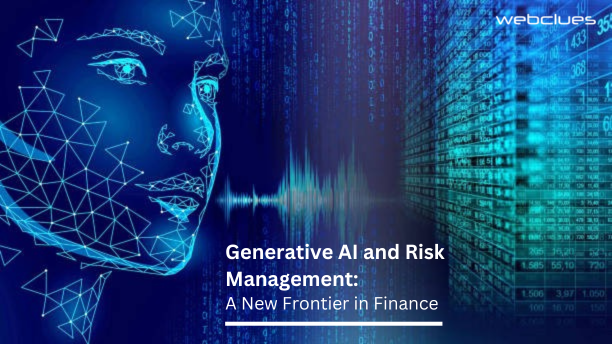Understanding Generative AI:
Generative AI refers to systems that are capable of generating new content, such as images, text, or even financial models, by learning patterns and relationships from vast datasets. Unlike traditional AI models that are task-specific and rule-based, Generative AI is creative, producing original outputs based on the knowledge it acquires during training. In finance, Generative AI holds promise for risk management by providing a dynamic and adaptive approach to understanding and forecasting complex financial scenarios.
Benefits of Generative AI in Risk Management:
Enhanced Predictive Analytics:
Generative AI can analyze historical data to identify patterns and trends that may not be immediately apparent to human analysts. This capability allows for more accurate predictions of market movements, asset prices, and other financial variables, enabling institutions to make better-informed decisions in risk management.
Scenario Planning:
Financial institutions often use scenario analysis to assess the impact of various events on their portfolios. Generative AI can simulate a multitude of scenarios, including those not encountered in the past, providing a comprehensive view of potential risks. This helps institutions develop robust risk mitigation strategies and adapt to unforeseen circumstances.
Fraud Detection:
Generative AI can be employed to enhance fraud detection mechanisms by identifying irregularities and anomalies in financial transactions. By continuously learning and adapting to new patterns of fraudulent behavior, Generative AI contributes to a more proactive approach to risk management, reducing the financial impact of fraudulent activities.
Automated Decision-Making:
Through machine learning algorithms, Generative AI can automate routine decision-making processes in risk management. This not only improves efficiency but also minimizes human biases, ensuring more objective and data-driven risk assessments.
Challenges and Considerations:
Data Privacy and Security:
As financial institutions increasingly rely on Generative AI, ensuring the security and privacy of sensitive financial data becomes paramount. The potential for malicious actors to exploit vulnerabilities in AI systems raises concerns about the protection of confidential information.
Explainability and Transparency:
Generative AI models often operate as complex "black boxes," making it challenging to explain their decision-making processes. This lack of transparency may pose challenges in regulatory compliance and hinder the ability of financial institutions to understand and trust the outputs of these systems.
Ethical Concerns:
The use of Generative AI in finance raises ethical considerations, particularly regarding accountability and the potential for unintended consequences. Ensuring that AI systems align with ethical standards and are used responsibly is crucial to maintaining public trust in the financial industry.
Integration and Adaptation:
Incorporating Generative AI into existing risk management frameworks requires significant investment in technology, infrastructure, and employee training. Financial institutions must navigate the complexities of integration to fully harness the benefits of Generative AI.
Conclusion:
Generative AI represents a new frontier in finance, offering unparalleled opportunities to revolutionize risk management practices. The ability to generate novel insights, automate decision-making, and adapt to evolving market conditions positions Generative AI as a powerful tool for financial institutions. However, the integration of this technology comes with challenges related to data privacy, transparency, and ethical considerations. As the financial industry continues to embrace the potential of Generative AI, striking a balance between innovation and responsible use will be essential to unlock its full potential and ensure a secure and resilient financial ecosystem. Well, if you are looking for a reliable and experienced partner to help you leverage the power of Generative AI in finance, look no further than WebClues Infotech.


0 Comments